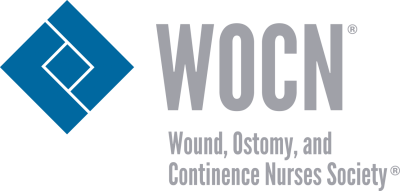MSK Library will be closed on Monday, May 29 in observance of Memorial Day holiday. We will re-open on Tuesday, May 30.
We wish the MSK community a safe and restful holiday weekend.
Posts are written by library staff and reflect their personal opinions not necessarily those of MSK.
 The MSK Library has recently added 3 new titles from the Wound, Ostomy, and Continence Nurses Society Core Curriculum series. They are the 2nd editions of Wound Management, Ostomy Management, and Continence Management.
The MSK Library has recently added 3 new titles from the Wound, Ostomy, and Continence Nurses Society Core Curriculum series. They are the 2nd editions of Wound Management, Ostomy Management, and Continence Management.
These texts are a main source for expert guidance, training and wound, ostomy, and continence (WOC) certification exam preparation. This is essential content for those seeking WOC certification, including nursing students in WOC programs; nurses involved in wound care, ostomy management, or continence management; nurses in gastroenterology, urology, and surgical nursing; and graduate nursing students and nursing faculty.
Chapter features include: Objectives at the start of each chapter, Key Points that expand on important concepts, Tables that offer clinical guidelines and care strategies, Case Studies that optimize clinical decision-making, and End-of-Chapter Review Q&A’s — multiple choice questions followed by answers and rationales.
How do we support researchers in identifying trusted journals and publishers for their research?
Join us for a deep dive and thoughtful presentations on ways in which our speakers have found to recognize questionable publishing, as well as useful tips to avoid and handle “predatory” journal solicitation.
Bring your questions about this growing issue to this session as there will be time for attendees to participate in an interactive Q&A discussion.
Date: Thursday, June 8, 2023
Time: 12:00 PM to 1:30 PM, EST
Zoom Webinar: Register now
Speaker Bios:
Monica Berger, MS, MA, Associate Professor, Library, New York City College of Technology, CUNY, has published and presented on various topics related to scholarly publishing with a focus on predatory (questionable) publishing. She has two forthcoming publications, a chapter on the role of librarians in mitigating predatory publishing by promoting scholarly information literacy (Routledge) and a scholarly monograph on predatory publishing (Association of Research and College Libraries, Publications in Librarianship series). Berger supports faculty scholarship at her campus by teaching workshops as well as providing consultations. An ardent proponent of open access, she also manages her campus institutional repository, CUNY Academic Works.
Jacob Glass, MD, PhD, Computational Physician Scientist on the Leukemia Service and in the laboratory of Ross Levine and the Center for Epigenetics Research at Memorial Sloan Kettering Cancer Center. Dr. Glass’s laboratory research involves the study of leukemias with lineage ambiguity, the development of natural language processing systems to aid in clinical research, and the construction of models to integrate wearable data in clinical care.
Kevin Nicholas, MPA, is a data scientist on the Applied Data Science team, which is part of MSK’s Strategy & Innovation Department. Kevin has analyzed, built, and published on various predictive models and dashboards over the last decade, including ones used in production by clinical staff at MSK. He has worked at MSK for 7 years and works remotely from his home in Washington, DC.
John Seguin, MLS, President, Chief Librarian and co-founder of Third Iron, a library technology company based in Minneapolis formed in 2011. Since that time the company’s flagship product, the BrowZine Journal Engagement Service, has been adopted by nearly 1,500 institutions in more than 32 countries. Third Iron’s newest offering, LibKey, externalizes much of the internal power of BrowZine into a suite of API’s and products delivering AI-based intelligent linking technology to all aspects of library services. Third Iron aims to improve the user experience of getting users to authenticated materials quickly and easily regardless of their starting point.